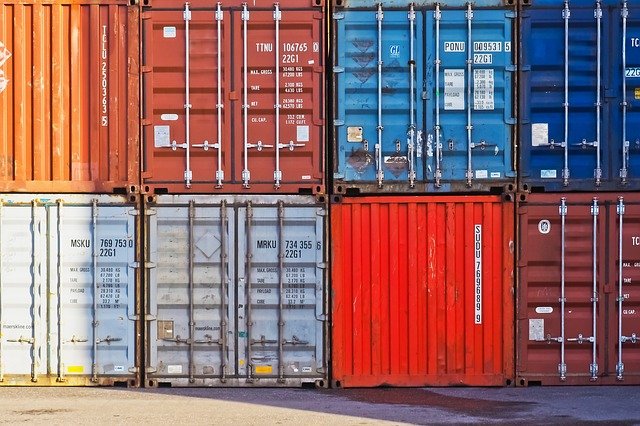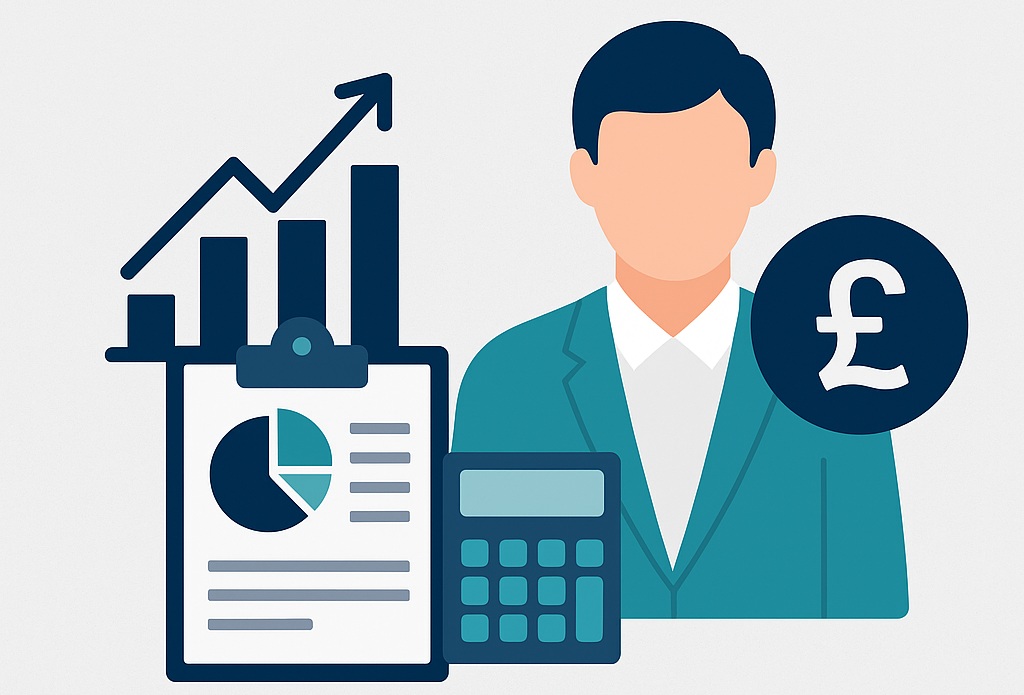According to figures, the UK imports more than it exports, but this is far from the whole story.
It is true that the UK currently runs a trade deficit with the EU, but the value of goods the UK exports to non-EU countries is generally greater than imports from these countries.
In a post-Brexit world, this may well prove significant for UK SMEs looking to export.
However, even though the UK is no longer a member of the EU, we do have a trade deal in place, which means tariffs will continue not to apply.
Exporting goods can provide excellent opportunities for growth for UK enterprises, but one of the barriers that many businesses must first overcome is the perception exporting is not an option.
What Can I Export?
There is a wide range of goods, and services, you can export.
For example, the Food and Drink Federation (FDF) reports regularly on the top UK exports for food and drink products.
In 2019, these included:
- Whisky
- Gin
- Beer
- Salmon
- Chocolate
- Cheese
- Beef
- Pork
- Breakfast cereals.
The top non-food exports from the UK include:
- Machinery and transport equipment
- Chemicals
- Miscellaneous manufactured goods
- Fuels
- Crude materials.
The export trade in services from the UK is varied too, and in 2018 the Office for National Statistics (ONS) reported that professional, scientific and technical activities, along with the communication and information industries, accounted for over 50 per cent of UK services exports.
To help UK businesses start exporting, the Department for International Trade posts information about the latest export opportunities online.
Winning trade overseas is an opportunity for you to kickstart your growth, find new markets, and become more competitive and innovative.
However, to do this successfully, you need to do your research and you should consider the following:
- Does the demand for your product exist abroad?
- What are your domestic sales like? Exporting is easier if you’re building on some degree of success.
- Are your competitors already exporting, and who would your new competitors be in overseas markets?
- Are your competitors already exporting, and who would your new competitors be in overseas markets?What are the standard marketplace practices in the countries you’re thinking of exporting to?
Does Your Business Need an Accountant?
There’s nothing stopping you from doing your own accounts. It is not a legal requirement for businesses to use the services of a professional accountant.
However, an accountant is a ready resource who can add value to your business.
At a basic level, your accountant can complete your self assessment or end of year accounts. But there are other services which you could take advantage of to help set up your business financially:
- Bookkeeping
- Corporation tax returns
- VAT returns
- Payroll management.
These are all essential administrative tasks which growing businesses encounter to a greater or lesser degree.
Most startups often start small, maybe just a couple of people in a room, but as they expand, their administrative requirements expand with them.
The crucial thing is to recognise when these requirements mean you could benefit from outsourcing certain specialist areas, such as your accounting.
Remember, too, that you can claim your accountant’s services as a business expense to offset your taxes.
Is Using an Accountant Costly?
Using any professional service comes with a cost, and this applies to a chartered accountant as it would another type of expert.
But having an accountant you can turn to as a resource is also extremely cost-effective.
They are someone who you can put in a position of trust, because they gain a detailed understanding of your business, helping to prepare it for growth, while working to minimise your tax burden.
Trust really is a high-value commodity when you’re a startup, and it can be the thing that makes a difference to whether you succeed or not.
How Do I Export?
First, there are the practical issues of how you transport your goods abroad.
There are two major ways of doing this:
- If you deal in small orders, you can post goods overseas, or
- For bigger orders, you will need to use a customs broker, freight forwarder, or a shipping company.
A customs broker should ensure the smooth export, and import, of goods by facilitating their clearance through customs processes. In fact, many freight forwarders include this as part of their overall services to exporters.
A freight forwarder acts as your agent, organising the safe and efficient transportation of your goods. They arrange the optimum system of transport, appropriate to the type of product, and your delivery requirements.
The shipping company, or transporter, takes your goods overseas. There are various methods for doing this. The conventional method is to consolidate your goods with other cargo, to minimise transport costs. Alternatively, some companies offer direct shipping, where they will load your goods onto the first available flight, without waiting for other cargo.
If you’re exporting goods out of the UK by road this is a useful checklist of the steps to take:
- You must apply for operator licences and permits
- Your driver must be eligible to drive abroad
- You must check any rules that apply to the goods you’re carrying, such as perishable food, dangerous goods, abnormal loads, live animals or animal products
- Ensure your driver has the right export and vehicle documents
- Check what local road rules apply.
It is essential to set up a cost-effective and efficient process for moving your goods.
Again, research is key.
Know Your EORI Number
To move goods to a country either inside or outside the EU, you require an EORI number.
EORI stands for Economic Operators and Register Identification.
This is an identification number for all customs procedures. It provides a method for tracking products that are being shipped and traded.
You can apply for an EORI number online.
The EORI number consists of an individual ISO country code that is 15 digits long.
In the UK, this normally begins with GB and then includes your company’s VAT number, followed by a suffix of three zeroes.
You can also apply for an EORI number if you a non-VAT registered.
Tariff or Commodity Codes
For any goods you are exporting, you will also require a matching tariff or commodity code.
Previously, these have only applied to non-EU countries, but in 2021, they are necessary for trade between the UK and the EU.
Commodity codes apply, even though, under the post-Brexit trade deal, there will be no actual tariffs applied to goods.
Matching your goods to the right codes is a legal requirement, and failure to do so can mean fines, top-up taxes and delays.
Apply the wrong code, and you could be paying the wrong duty on your goods.
These codes are a range of digits which identify specific products, and have two parts:
- The first part is the global standard HS code, which stands for Harmonised System
- The second part is a further set of eight EU digits (which will apply if you’re exporting to the EU).
There is an online Trade Tariff Tool for looking up the right code for your product.
What are the VAT Rules for Exports?
There is no VAT charge for products you export, which means you can zero-rate these goods.
There are, however, some exceptions.
You cannot zero-rate the sale if the person you are exporting to asks for the goods to go to a UK address.
Also, if the overseas customer arranged to collect the goods from you, then VAT could apply. This would come under the classification of an indirect export.
VAT rules for exports apply to countries inside and outside the EU.
While you zero rate the VAT in the UK, import VAT may be charged when the goods reach the destination country. You may wish to pay this charge in advance to avoid your goods being stuck at the border. If you don’t pay this charge, your customer will need to.
How Do Customs Regulations Work?
Brexit means more complexity around customs regulations when exporting to EU countries.
Even with a trade deal in place, there is more paperwork because the UK has left the customs union.
Exporting requires a full customs declaration. This is normally something you would complete electronically via the Customs Handling of Import and Export Freight (CHIEF) system.
You can do this either by appointing an agent, or applying to CHIEF yourself. You may also need third-party software for your business to submit customs declarations.
You would normally make a full customs declaration before your goods leave the UK.
This submission period depends on your mode of transport for your goods, and can vary from two hours to 30 minutes.
If you satisfy certain conditions, you can apply to use simplified declarations for exports, which means you then send more information to customs later, in the form of a supplementary declaration.
What Costs Does Exporting Involve?
Exporting will involve additional costs. A useful starting point is your current, domestic unit price.
When working out your unit price, you will look at the unit cost, and what amount will cover this plus the amount of profit you add.
Exporting will involve more indirect costs, covering items such as:
- Costs for researching new markets, including desk and field research
- Translation costs for packaging
- Legal advice from agents or distributors
- Insurance costs
- Communication costs, such as phone bills
- Transactional costs for payment methods
And direct costs specific to your consignments:
- Shipping
- Packaging
- Export licences and documentation
- Transportation insurance.
Covering these costs requires that you look carefully at your export unit price, if you’re going to maintain or increase your margins.
But you will also need to balance this against your strategic marketing, such as cutting initial prices to gain a stronger foothold in your overseas market.
This reiterates the importance of researching your export markets thoroughly and understanding how local trading issues and circumstances can impact your performance and profitability.
Cash-flow management is crucial, and letters of credit are an effective means of putting best practice into place.
Letters of credit give details of payment terms and conditions, and state at what point your customers should be paying for your goods.
Preparation is vital for minimising your financial risk, and therefore you must also consider:
- Exchange rate fluctuation – this can impact on your profit margins as an exporter, and you should try and match your income and expenditure in the same currency
- Product compliance – check that your product specifications match the regulations and standards of the country you’re exporting to
- Licencing – you need an export licence to export electronic equipment, machine tools, computers and communications equipment
- Insurance – it’s not a legal requirement to insure your goods, but it makes sense to take out marine insurance for damage or loss of goods in transit.
Accounting Advice for Exporters
Here at Venn Accounts, we specialise in supporting startup businesses and SMEs throughout the UK, helping them to grow, develop and evolve into thriving businesses through our range of cloud-based, chartered management accountancy services.
For more information, give us a call on 020 8088 2590, email enquiries@vennaccounts.com or fill in our contact form, and we’ll be in touch as soon as possible.





